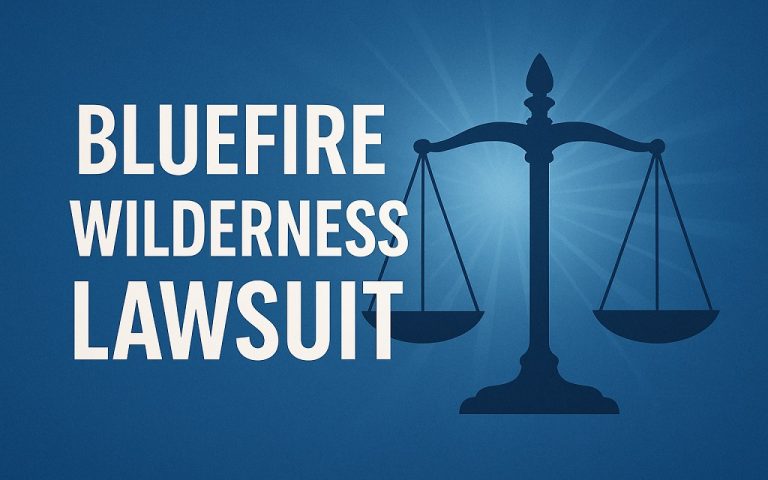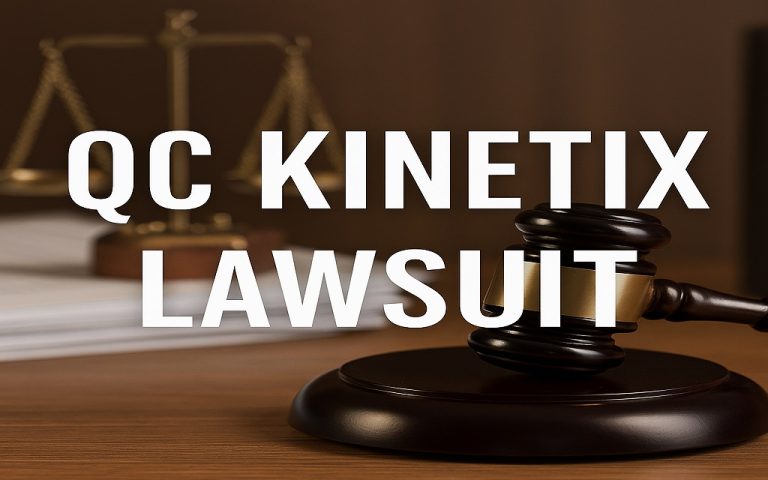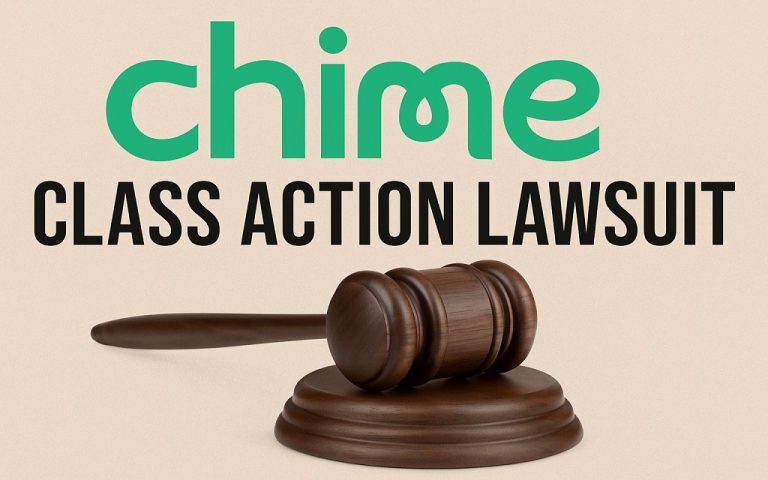Significant concerns regarding property conflicts, legal rights, and estate obligations in Texas have been brought up by the Trajan Shipley estate lawsuit. Court documents suggest a complex legal lawsuit involving actual assets or contract violations, despite the limited specifics. This guide provides a concise explanation of the case, the legal schedule, and possible outcomes for those seeking to understand what is at stake and what could happen next.
What Is the Trajan Shipley Estate Lawsuit?
The Trajan Shipley estate lawsuit has gained attention due to its complexity and mystery. The action, which has been filed in a Texas court, contains numerous potential allegations. These include claims of civil harm, real estate conflicts, and contract violations.
Despite the limited public record, sufficient evidence has emerged to assess the legal approach and potential future developments in the case.
Who Is Trajan Shipley in This Legal Context?
Trajan Shipley is a figure tied to estate litigation in Texas. He is either the plaintiff or the defendant in a case concerning private or business matters, according to the reports currently available.
The case can be related to a business interest issue involving personal assets, a fiduciary violation, or an inheritance of property. Uncertain estate planning, ownership issues, or unmet contractual responsibilities between heirs or partners are frequently the causes of these kinds of cases.
What Triggered the Lawsuit?
According to the publicly given information, there are several possible causes of action:
- Breach of contract
- Personal injury claim
- Commercial or business litigation
- Real estate transaction dispute
The defence most frequently contests culpability, whereas the plaintiff in the action claims injury or duty breach. The case follows a standard Texas civil litigation procedure, regardless of whether the challenge relates to contract non-performance, a botched property purchase, or estate mismanagement.
Must Read: Round Up Lawsuit: What You Must Know About Cancer Claims, Settlements, and Your Legal Options
Understanding the Legal Basis
In Texas, estate-related lawsuits commonly fall under:
1. Violating the Fiduciary Duty
A person must behave honestly, carefully, and diligently when tasked with overseeing another person’s assets or finances. Legal action could be taken against Shipley or any other party who broke this trust.
2. Real Estate Litigation
Lawsuits may result from property issues involving inherited land, ambiguous titles, or illegal transactions. In Texas, these allegations are frequently made in cases involving probate.
3. Contract Disputes
If a will, estate trust, or business partnership agreement wasn’t honored, the harmed party can sue for damages or enforcement.
4. Negligence or Injury Claims
If someone else’s activities cause you to suffer physical pain or financial harm, you may be able to file a case under Texas tort law.
A plaintiff must establish some aspects in court for each cause of action, including duty, breach, causation, and damages.
Where Is the Case Now? Discovery and Pre-Trial Motions
Reports that are now available indicate that the Trajan Shipley case is at the discovery stage. This suggests that before the trial, both parties are obtaining evidence.
Discovery Phase Includes:
- Interrogatories (written questions)
- Depositions (oral testimony under oath)
- Requests for production (documents, emails, contracts)
- Expert witness reports
This phase is critical. It can uncover hidden communications, flawed paperwork, or misrepresentations in a deal.
The next likely steps include:
- Motions to compel discovery
- Motion for summary judgment
- Settlement negotiations
- Pre-trial conference scheduling
Possible Legal Outcomes
What could happen next in the Trajan Shipley Texas lawsuit?
1. Out-of-Court Settlement
Most civil lawsuits resolve this way. A confidential agreement could close the case quietly.
2. Motion for Summary Judgment
One side may ask the court to rule before trial, arguing the facts are undisputed.
3. Trial
If discovery raises conflicting facts or evidence of bad faith, the case may go before a judge or jury.
4. Appeal
Losing parties can challenge verdicts, mainly if legal errors occurred.
Timeline of a Texas Civil Lawsuit
Understanding the civil court process helps decode where the Shipley estate lawsuit is headed.
| Phase | Description |
|---|---|
| Filing | The plaintiff files a petition in state district court |
| Service | The defendant is formally served |
| Answer | Defendant responds with defenses |
| Discovery | Exchange of facts and evidence |
| Pre-trial Motions | Legal arguments, summary judgment, and evidentiary exclusions |
| Trial | Full court proceeding, if not settled |
| Appeal | Higher court review, if requested |
Why the Case Has Gained Public Interest
Several factors have made this lawsuit a trending legal search:
- Estate disputes often involve high-value assets and personal drama.
- Real estate conflicts in Texas can impact multiple parties.
- Lack of public details fuels speculation and media curiosity.
- The Shipley name may be tied to business interests or public assets.
Public records remain unclear, but updates may follow once pre-trial motions are heard or a trial date is scheduled.
How Texas Law Handles Estate Disputes
Estate lawsuits in Texas follow a strict legal framework. When conflict arises over assets, wills, or trusts, the court assesses:
- Validity of estate documents
- Duties of executors, trustees, or agents
- Claims of undue influence, fraud, or duress
- Property ownership and title transfers
- Compliance with probate and civil procedure
The Texas Estates Code and Texas Property Code guide these rulings.
Legal Terms to Know in This Lawsuit
Here are key phrases used in estate and civil lawsuits:
- Cause of Action: The legal reason for suing
- Petition: Initial court filing that outlines claims
- Discovery: Process of evidence exchange
- Burden of Proof: The burden of proof is on the plaintiff to establish the facts of the harm.
- Fiduciary Duty: The obligation under law to behave in the best interests of others
- In brief Conclusion: Deciding without a trial if the facts are uncontested
- Deposition: Recorded sworn testimony for use in court
- Agreement for Settlement: a contract that puts an end to the litigation
Proper use of these phrases helps search engines and legal teams understand the breadth of the subject.
Why Discovery Is Crucial in This Lawsuit
Discovery can make or break a case. In estate-related disputes, this phase often uncovers:
- Altered or hidden will documents
- Unauthorized financial transactions
- Misuse of power of attorney
- Communication showing intent to deceive or defraud
These facts shape motion arguments and can also drive parties toward early resolution.
Will the Case Go to Trial?
It depends. If discovery turns up apparent wrongdoing or damages, Shipley’s side may push for trial. If facts remain weak or both parties want closure, they may settle.
Lawyers typically weigh:
- Cost of trial
- Strength of documentary evidence
- Public exposure risk
- Defendant’s financial capacity
Trials bring risk but may also deliver justice or vindication.
What Can We Learn From This Lawsuit?
This case reflects larger truths about civil litigation:
- As property prices and family wealth continue to climb, estate battles are becoming more common in Texas.
- Succession disputes and breaches of trust can harm financial and familial relationships.
- Strong estate planning, accompanied by clear documentation, can help avoid many of these battles.
- Legal procedures matter — cases can stall without a skilled litigation strategy.
FAQs
What Is the Cause of Action in the Trajan Shipley Lawsuit?
While unclear, it likely involves a breach of fiduciary duty, contractual failure, or an estate-related property dispute.
Is Shipley the Plaintiff or Defendant?
This remains unclear. He could be suing to reclaim estate rights or defending against claims of mismanagement.
Is This a Criminal Case?
No. This is a civil lawsuit, not a criminal prosecution.
Has the Court Ruled Yet?
No final ruling exists. The case appears to still be in discovery or pre-trial motion phases.
What Court Is Handling the Case?
It’s most likely filed in a Texas District Civil Court based on procedural references.
Conclusion
In short, Civil litigation is complicated, as seen by the continuing Trajan Shipley estate lawsuit. Every level necessitates proof, clarity, and legal preparedness, from real estate claims to contract disputes and fiduciary obligations.
The case highlights the importance of estate transparency and legal accountability, regardless of whether Shipley is pursuing justice or defending against charges.
New filings might provide further information as the case develops. In the meantime, this case serves as a reminder that estate-related legal challenges in Texas are often complex and contentious.
Disclaimer: This article provides a general overview of the Trajan Shipley Estate lawsuit, based on publicly available information, and is intended for informational purposes only. It does not constitute legal advice.
Musarat Bano is a content writer for JudicialOcean.com who covers lawsuits, legal news, and general legal topics. Her work focuses on research-based, informational content developed from publicly available sources and is intended to support public awareness. She does not provide legal advice or professional legal services.




